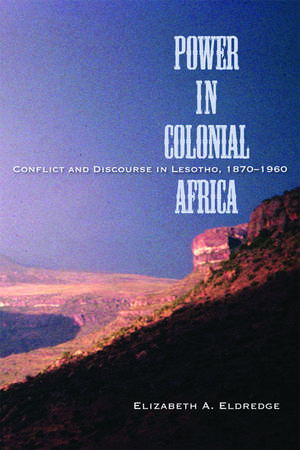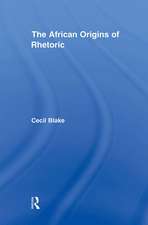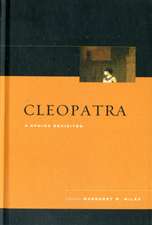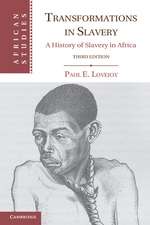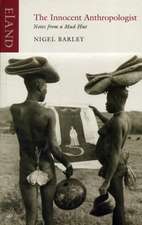Power in Colonial Africa: Conflict and Discourse in Lesotho, 1870–1960: Africa and the Diaspora: History, Politics, Culture
Autor Elizabeth Eldredgeen Limba Engleză Hardback – 7 oct 2007
Even in its heyday European rule of Africa had limits. Whether through complacency or denial, many colonial officials ignored the signs of African dissent. Displays of opposition by Africans, too indirect to counter or quash, percolated throughout the colonial era and kept alive a spirit of sovereignty that would find full expression only decades later.
In Power in Colonial Africa: Conflict and Discourse in Lesotho, 1870–1960, Elizabeth A. Eldredge analyzes a panoply of archival and oral resources, visual signs and symbols, and public and private actions to show how power may be exercised not only by rulers but also by the ruled. The BaSotho—best known for their consolidation of a kingdom from the 1820s to 1850s through primarily peaceful means, and for bringing colonial forces to a standstill in the Gun War of 1880–1881—struggled to maintain sovereignty over their internal affairs during their years under the colonial rule of the Cape Colony (now part of South Africa) and Britain from 1868 to 1966. Eldredge explores instances of BaSotho resistance, resilience, and resourcefulness in forms of expression both verbal and non-verbal. Skillfully navigating episodes of conflict, the BaSotho matched wits with the British in diplomatic brinksmanship, negotiation, compromise, circumvention, and persuasion, revealing the capacity of a subordinate population to influence the course of events as it selectively absorbs, employs, and subverts elements of the colonial culture.
“A refreshing, readable and lucid account of one in an array of compositions of power during colonialism in southern Africa.”—David Gordon, Journal of African History
“Elegantly written.”—Sean Redding, Sub-Saharan Africa
“Eldredge writes clearly and attractively, and her studies of the war between Lerotholi and Masupha and of the conflicts over the succession to the paramountcy are essential reading for anyone who wants to understand those crises.”—Peter Sanders, Journal of Southern African Studies
In Power in Colonial Africa: Conflict and Discourse in Lesotho, 1870–1960, Elizabeth A. Eldredge analyzes a panoply of archival and oral resources, visual signs and symbols, and public and private actions to show how power may be exercised not only by rulers but also by the ruled. The BaSotho—best known for their consolidation of a kingdom from the 1820s to 1850s through primarily peaceful means, and for bringing colonial forces to a standstill in the Gun War of 1880–1881—struggled to maintain sovereignty over their internal affairs during their years under the colonial rule of the Cape Colony (now part of South Africa) and Britain from 1868 to 1966. Eldredge explores instances of BaSotho resistance, resilience, and resourcefulness in forms of expression both verbal and non-verbal. Skillfully navigating episodes of conflict, the BaSotho matched wits with the British in diplomatic brinksmanship, negotiation, compromise, circumvention, and persuasion, revealing the capacity of a subordinate population to influence the course of events as it selectively absorbs, employs, and subverts elements of the colonial culture.
“A refreshing, readable and lucid account of one in an array of compositions of power during colonialism in southern Africa.”—David Gordon, Journal of African History
“Elegantly written.”—Sean Redding, Sub-Saharan Africa
“Eldredge writes clearly and attractively, and her studies of the war between Lerotholi and Masupha and of the conflicts over the succession to the paramountcy are essential reading for anyone who wants to understand those crises.”—Peter Sanders, Journal of Southern African Studies
Din seria Africa and the Diaspora: History, Politics, Culture
-
 Preț: 164.51 lei
Preț: 164.51 lei -
 Preț: 165.36 lei
Preț: 165.36 lei -
 Preț: 216.96 lei
Preț: 216.96 lei -
 Preț: 258.96 lei
Preț: 258.96 lei -
 Preț: 172.75 lei
Preț: 172.75 lei -
 Preț: 241.30 lei
Preț: 241.30 lei -
 Preț: 235.42 lei
Preț: 235.42 lei -
 Preț: 319.98 lei
Preț: 319.98 lei -
 Preț: 427.26 lei
Preț: 427.26 lei -
 Preț: 240.43 lei
Preț: 240.43 lei - 15%
 Preț: 476.97 lei
Preț: 476.97 lei -
 Preț: 149.90 lei
Preț: 149.90 lei - 23%
 Preț: 476.07 lei
Preț: 476.07 lei -
 Preț: 505.08 lei
Preț: 505.08 lei -
 Preț: 539.68 lei
Preț: 539.68 lei -
 Preț: 205.29 lei
Preț: 205.29 lei -
 Preț: 265.45 lei
Preț: 265.45 lei - 23%
 Preț: 534.68 lei
Preț: 534.68 lei - 23%
 Preț: 475.06 lei
Preț: 475.06 lei - 23%
 Preț: 475.06 lei
Preț: 475.06 lei - 23%
 Preț: 471.92 lei
Preț: 471.92 lei - 23%
 Preț: 471.33 lei
Preț: 471.33 lei - 21%
 Preț: 343.29 lei
Preț: 343.29 lei - 19%
 Preț: 440.08 lei
Preț: 440.08 lei - 8%
 Preț: 529.24 lei
Preț: 529.24 lei
Preț: 507.02 lei
Nou
Puncte Express: 761
Preț estimativ în valută:
97.02€ • 101.66$ • 80.20£
97.02€ • 101.66$ • 80.20£
Carte tipărită la comandă
Livrare economică 11-25 aprilie
Preluare comenzi: 021 569.72.76
Specificații
ISBN-13: 9780299223700
ISBN-10: 0299223701
Pagini: 264
Ilustrații: 1 b-w map
Dimensiuni: 152 x 229 x 25 mm
Greutate: 0.52 kg
Ediția:1
Editura: University of Wisconsin Press
Colecția University of Wisconsin Press
Seria Africa and the Diaspora: History, Politics, Culture
ISBN-10: 0299223701
Pagini: 264
Ilustrații: 1 b-w map
Dimensiuni: 152 x 229 x 25 mm
Greutate: 0.52 kg
Ediția:1
Editura: University of Wisconsin Press
Colecția University of Wisconsin Press
Seria Africa and the Diaspora: History, Politics, Culture
Recenzii
“A leading scholar of Lesotho, Elizabeth Eldredge has produced a fascinating case-study of how a colonized people used guns and words in response to the colonial situation in which they found themselves. Her book is an important addition to southern African studies.”—Christopher Saunders, University of Cape Town, South Africa
“This study of colonial Lesotho is an effort to hear ‘those whose voices have been submerged and suppressed in the historical record,’ to give weight to ‘hidden transcripts such as those appearing in oral traditions and oral histories.’ It is a reconsideration of the views of Lesotho history from earlier scholars, and in the process to provide insights into the impact of colonialism on countries such as Lesotho. It is a thoughtful attempt to dislodge some of the theories and conclusions of conventional western scholars. Eldredge raises new questions about accepted theory. This is a successful and worthy history.”—Harold Scheub, University of Wisconsin–Madison, editor of African Tales
“Eldredge’s work provides important detail and critical analysis of some defining moments in Lesotho’s history, and successfully uses Lesotho to illustrate how Africans used hidden messages in public discourse to challenge colonial rule.”—Scott Rosenberg, Journal of African Historical Studies
“An empirically rich social and cultural study of the colonial order that will be a great help to scholars of Lesotho.”—Clifton Crais, Anthropos
Notă biografică
Elizabeth A. Eldredge is the author of A South African Kingdom: The Pursuit of Security in Nineteenth-Century Lesotho and other works on southern Africa.
Descriere
Even in its heyday European rule of Africa had limits. Whether through complacency or denial, many colonial officials ignored the signs of African dissent. Displays of opposition by Africans, too indirect to counter or quash, percolated throughout the colonial era and kept alive a spirit of sovereignty that would find full expression only decades later.
In Power in Colonial Africa: Conflict and Discourse in Lesotho, 1870–1960, Elizabeth A. Eldredge analyzes a panoply of archival and oral resources, visual signs and symbols, and public and private actions to show how power may be exercised not only by rulers but also by the ruled. The BaSotho—best known for their consolidation of a kingdom from the 1820s to 1850s through primarily peaceful means, and for bringing colonial forces to a standstill in the Gun War of 1880–1881—struggled to maintain sovereignty over their internal affairs during their years under the colonial rule of the Cape Colony (now part of South Africa) and Britain from 1868 to 1966. Eldredge explores instances of BaSotho resistance, resilience, and resourcefulness in forms of expression both verbal and non-verbal. Skillfully navigating episodes of conflict, the BaSotho matched wits with the British in diplomatic brinksmanship, negotiation, compromise, circumvention, and persuasion, revealing the capacity of a subordinate population to influence the course of events as it selectively absorbs, employs, and subverts elements of the colonial culture.
“A refreshing, readable and lucid account of one in an array of compositions of power during colonialism in southern Africa.”—David Gordon, Journal of African History
“Elegantly written.”—Sean Redding, Sub-Saharan Africa
“Eldredge writes clearly and attractively, and her studies of the war between Lerotholi and Masupha and of the conflicts over the succession to the paramountcy are essential reading for anyone who wants to understand those crises.”—Peter Sanders, Journal of Southern African Studies
In Power in Colonial Africa: Conflict and Discourse in Lesotho, 1870–1960, Elizabeth A. Eldredge analyzes a panoply of archival and oral resources, visual signs and symbols, and public and private actions to show how power may be exercised not only by rulers but also by the ruled. The BaSotho—best known for their consolidation of a kingdom from the 1820s to 1850s through primarily peaceful means, and for bringing colonial forces to a standstill in the Gun War of 1880–1881—struggled to maintain sovereignty over their internal affairs during their years under the colonial rule of the Cape Colony (now part of South Africa) and Britain from 1868 to 1966. Eldredge explores instances of BaSotho resistance, resilience, and resourcefulness in forms of expression both verbal and non-verbal. Skillfully navigating episodes of conflict, the BaSotho matched wits with the British in diplomatic brinksmanship, negotiation, compromise, circumvention, and persuasion, revealing the capacity of a subordinate population to influence the course of events as it selectively absorbs, employs, and subverts elements of the colonial culture.
“A refreshing, readable and lucid account of one in an array of compositions of power during colonialism in southern Africa.”—David Gordon, Journal of African History
“Elegantly written.”—Sean Redding, Sub-Saharan Africa
“Eldredge writes clearly and attractively, and her studies of the war between Lerotholi and Masupha and of the conflicts over the succession to the paramountcy are essential reading for anyone who wants to understand those crises.”—Peter Sanders, Journal of Southern African Studies
